How good is it when you’re snuggled up on the couch laughing between mouthfuls of your favourite ice-cream, diving into that messy pancake stack with your family on a Sunday morning, taking the first bite of velvety sweet birthday cake or ripping open a bag of snake lollies as you set out on a road trip with friends?


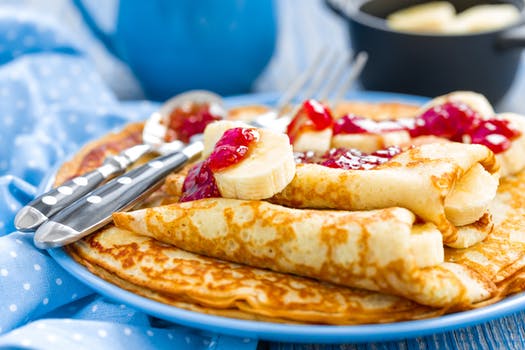
If it’s not one of the above scenarios that gets your tastebuds excited you probably don’t have to ponder too long to come up with some other selection of sweet sugary foods that do. For most of us eating sweet foods is a pleasurable experience and there’s actually a biological reason for this. Your brain is the product of years of evolutionary selection of adaptations that were advantageous in promoting and reinforcing the behaviours most likely to keep you alive in the wild. The ability to select sweet nutrient dense food being a valuable component of this survival toolkit. Therefore, the pleasurable feelings associated with eating palatable food are not just for the fun of it it’s actually your body rewarding you. A clever tactic hardwired into your brain to encourage more of that life sustaining behaviour in the future.
It is by no means new information that diets high in added sugars contribute to a number of deleterious health effects and diseases. However, in recent years sugar has really been thrown into the limelight for a new reason after a New York Times article likened sugar to cocaine or heroin1. Certainty a claim that sugar may be as addictive or in the case of another article ‘8 times more addictive than cocaine’ is worthy of attention.
Sugar does have some similarities to cocaine, I mean in one of its forms sugar is a white crystalline powder but do the parallels between these substances go deeper than appearance? Today we recognise many addictions including the well-known substances like drugs and alcohol but also every day behaviours including shopping, gambling, gaming, sex, technology or exercising and now eating, food or more precisely sugar has become a possible contender for addiction status. Is there truth behind sugar addiction or is it media hype? It’s certainly an intriguing topic because while many other addictions like drugs and alcohol essentially start out as optional at the end of the day eating is a biological necessity that not one of us can abstain from.
Opinions on sugar addiction, like most health-related topics, abound but what is the science behind sugar addiction? What is the evidence in support or against sugar addiction? In this post we are going to take a look at the scientific basis of sugar addiction and our biological pleasure-reward system associated with sweet foods in order to answer the dreaded but commonly asked question ‘Do I need to cut sugar from my diet?’
Defining Addiction
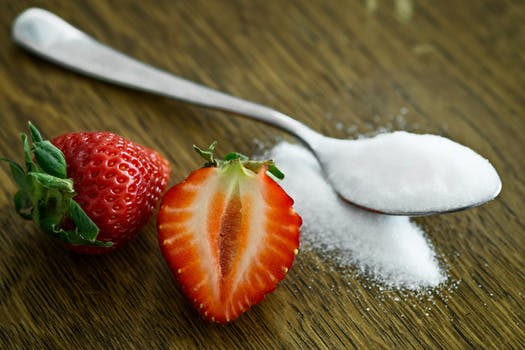
First, let’s define addiction because while it is pleasurable to eat sweet foods and we often do find it hard to stop at just a few lollies this alone does not mean sugar is addictive.
The Oxford Dictionary defines addiction as being ‘Physically and mentally dependent on a particular substance’2. To be a little more precise I would describe addiction as ‘The persistent need to do or take something even if to do so is knowingly causing you harm’. This means that even when we have the knowledge and understanding that something, be it a behaviour or a substance is causing us damage we don’t feel we can stop doing it. That is, you feel compelled to (a feeling of must or have to) do or take this thing.
To describe what goes on in addiction lets take the case of one of the more well-known substance addictions and use the umbrella term drugs. There are many different types of drugs that if taken repeatedly can lead to an addiction. Each person addicted to the drug experiences unique symptoms in response to taking the drug but there are also similar or shared universal responses in the brain that are characteristic of addiction. That is there is an activation of a pathway in the brain that is fairly consistent between subjects in response to taking a drug they are addicted to. The activation of these shared pathways in the brain results in a predictive pattern of responses we associate with addiction such as reward seeking behaviours (i.e taking the drug), cravings, impaired control, tolerance (that is an increasingly higher dose is needed to produce the same effect as a lower dose once did), withdrawal symptoms when the drug is withheld and high rates of relapse.
How does Sugar fit into the Addiction Model?

The argument for sugar addiction arose because studies in both animals (in particular rats) and more recently humans have highlighted commonalities in the response of the brain towards sugar and the classical reward driven addiction model described above. There is evidence that sugar also affects dopamine levels and receptors in the brain (a neurotransmitter involved in pleasure, reward and motivation regulation), has an increasing tolerance pattern like other drugs and increased binding of opioid receptors (concerned with hedonic responses, motivation and pleasure).
From these studies we know that eating sugar activates the areas of the brain associated with reward, that is sugar causes pleasurable responses (often referred to as hedonic responses) in a similar way to that of an addict when they take the drug they’re addicted to. However, this is where it becomes difficult to differentiate between whether our brains response to eating sugar is simply a natural adaptation to reward and thereby encourage us to seek sweet foods or if it is truly that sugar itself is an inherently addictive substance. In my understanding from the literature it is likely to be a combination of both factors with some people also being more highly susceptible than others.
Evolutionary Origins of the Pleasure-Reward Response to Eating

Your brain is hardwired to reward you when you eat. You have hunger signals to tell you when you need to eat, and you have pleasurable feelings of enjoyment and satisfaction during and after eating. In both cases the experience of these cues to eat have clear evolutionary advantages. Think about this situation for a moment if you didn’t get hungry or if there was no enjoyment associated with eating, would you eat as much as you currently do? The answer is more than likely no. Without these governing built in mechanisms it’s possible you wouldn’t eat enough to meet your needs which is clearly a problem being that inadequate food intake is incompatible with life.
In the days of our early ancestors it was an advantage to be motivated to and rewarded by seeking out and eating the most energy dense foods available because before agricultural and farming practices the availability of food was less reliable. The ability to differentiate between foods with a higher calorie content versus those with a lower calorie content and be geared towards choosing the higher calorie foods was an advantage because eating higher energy foods would promote beneficial fat stores. A huge win because it is your fat stores that allow you to survive longer periods between food if food was to suddenly be scarce for any number of reasons. This ability to seek out and eat the most nutrient dense foods is certainly an adaptation that has allowed for the development of our enormous brains which are responsible for our species success.
The bottom line is if your brain lights up and tells you eating x, y or z sweet, sugary and delicious food is fantastically pleasurable or if your child is asking for lollies (or let’s be real here screaming for lollies) it does not mean that you or they have a sugar addiction. It simply means you and your child like all other humans on this planet are both hardwired to seek out foods which are nutrient dense and traditionally sweet foods have been a good source of nutrients (for example fruits which are high in vitamins, minerals and other health promoting substances such as phytochemicals and antioxidants).
Today this association between sweet and nutrient dense (high in vitamins, minerals, calories and other beneficial substances) is not always true. This is due to our ability to manufacture foods where along the processing journey a lot of nutrients can be lost and the fact is your body evolved to a different reality therefore even though your conscious mind might now know the difference your body’s inbuilt sensors haven’t caught up.
Compulsive and Binge Eating

Often people who have tried several low-calorie diets in the attempt to lose weight will bring up their frustration and embarrassment that their body seems to be working against them by making them crave everything sweet.
The truth is your body is not working against you it is actually working with you, it is doing what it thinks is best for you. Your body doesn’t know why you are all of a sudden not feeding it enough, it doesn’t know it is intentional and no matter how well-meaning your health motives are your body does not perceive a sudden cut in calories as positive. In fact, your body perceives it as dangerous because your body is the product of billions of years of evolution long before ‘diet’ was a word. All your body knows is that an unexpected decrease in food intake is cause for extreme concern because the effects of prolonged inadequate food intake are severe and if unrectified results in death. Therefore, it’s not surprising your body has many inbuilt mechanisms to get you to up your intake! Your body really does have your utmost best interests at heart.
The number one contributor to binge eating and feeling out of control around food is when people have gone through a period of restricting what they eat. Whether this restriction is by choice as in the case of many weight loss diets or not by choice, the outcome is the same and that is an increased fascination and preoccupation with food and an increased desire to eat nutrient dense foods. Your desire or craving for palatable sweet and fatty foods goes up rather than your desire for watery bland vegetables because the former provide us with more energy than the later.
To illustrate the effects of food craving using a real-world example take the case of body builders. It is common for body builders to report episodes of binging after or during preparation for a competition where they’ve had to restrict their food intake to manipulate body fat percentages to reach extreme physique goals. Just to clarify quickly this craving, compulsion and binge eating behaviour is seen in people with no previous eating issues or eating disorders because it is the human body’s natural response to inadequate food intake (caloric deficit).
The majority of the studies I read that investigated sugar addiction were modelled on rats and many looked at the response of these rats when sugar was given to them intermittently between periods of being withheld. Unsurprisingly the rats would correspondingly binge on sugar when given the chance because the poor little guys didn’t know when it was going to be available again. As we’ve talked about above a similar behaviour is seen in humans when food is restricted for a period of time or if a particular food/s is/are removed from your diet you tend to crave those foods more. This restriction and removal lead to you being more likely to overeat them than if you did not restrict your intake in the first place. Therefore, the feeling of dependence or compulsion to eat sugar (addiction) that some people feel may be more related to eating patterns and beliefs and behaviours towards food than to any innate features of the substance (sugar) itself.
Should I Cut Sugar from my Diet?
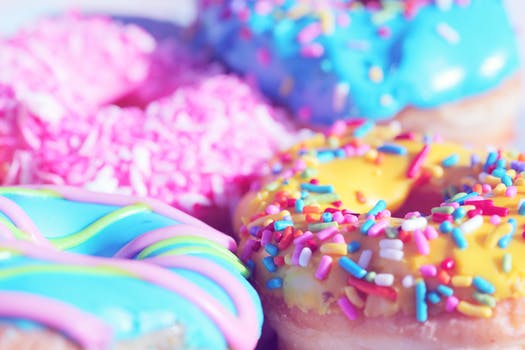
In short, the answer to this question is no. The longer and more important answer depends on how you answer this next question.
Does my relationship with sugar impact my day to day life or health in a negative way?
Whether you want to call it an addiction or not the main thing is to identify if it is causing a problem in your life or the life you want to live. If you can clearly feel and see that it is impacting the quality of your life or people in your life who love you and whose opinions, you trust are telling you there’s a problem then I encourage you to seek support and find ways to mend this because there are ways! Remember there are no failures, only feedback and if nothing has worked yet it’s not because there’s not a way that works it’s just that you haven’t found it yet. You do not have to concede your life to any internal battle, you are not at the mercy of sugar nor anything else while we’re at it. If you feel you are then let’s change this now.
Life is for doing and enjoying not avoiding!

On the other hand, if you’re eating habits are generally healthy and you’ve just heard a panic sugar addiction headline or have taken one of the online “am I a sugar addict?” quizzes and are suddenly fearful for your health then I want to take this moment to assure you sugar is not damaging your health in the same way an addiction to heroin would. You haven’t unwittingly been a cocaine addict your whole life.
So, How Does Sugar Fit into my Healthy Diet?
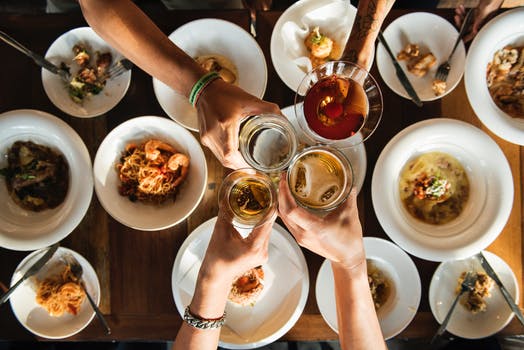
Currently the Australian Dietary Guidelines promote the healthiest eating pattern as one in which the majority of your dietary intake comes from five core food groups (1. meat and alternatives, 2. grains, 3. dairy and alternatives, 4. fruit and 5. vegetables) but is also flexible and spontaneous and has room for ‘fun foods’. Fun foods, or as we call them in the dietetics world ‘discretionary choices’ (taking half the enjoyment out of eating them right there!), are as the name suggests foods we eat pretty much entirely for their flavour, pleasure and enjoyment. Fun foods generally don’t have much going for them in the way of nutritional value in terms of vitamins and minerals and are often high in fat and/or refined sugar.
While fun foods as the foundation to your diet will never allow for optimal health they do have a place in a healthy and satisfying diet. If you’re using willpower or causing yourself pain in your determination to not eat fun foods or foods you think of as ‘unhealthy’ then stop. Stop fighting and seek help because you don’t need nor deserve to spend the rest of your life at war with yourself. Life isn’t for struggling through and you shouldn’t be at war with yourself. Life is truly for thriving!
The Big Picture: Cure over Diagnosis
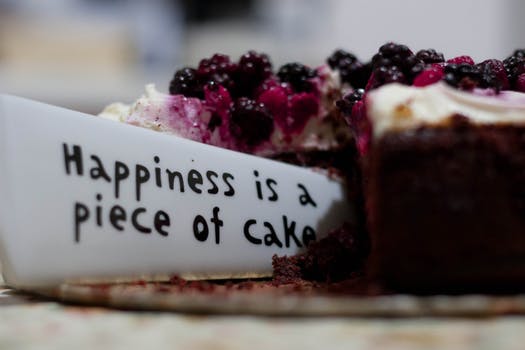
Different people are more susceptibilities to developing addictions to different things (any number of diverse substances or behaviours) therefore I don’t doubt that sugar produces very real symptoms of addiction in some people. I don’t think you need a diagnosis or a label of sugar addict to be worthy of help because if you do feel you have a problem with eating sugar the debate over whether this can be classified as an addiction or not isn’t the most important thing. What is truly important is that you seek support and guidance to create a higher quality of life where you are not ruled by anything you do not wish to have power or control over your thoughts or life be this food or other.
To me the biggest benefit I see with recognising sugar addiction in some people is that this would release the shame. Blame and shame have never nor never will lead to healing and taking this immense burden off (that should never have been there in the first place) can clear the way for addressing the true cause. Regardless of whether the label is technically correct or not your experience is real and doesn’t require scientific ‘proof’ to validate it.
The Verdict

While there are some definite similarities as well as some differences between the classical addiction model and sugar addiction the jury is out as to whether sugar itself is inherently addictive.
What is clear is that there is a natural pleasure-reward system in place which contributes to our attraction to sweet sugary foods. I acknowledge that this can be a problem in modern-day society where sweet foods are in abundant supply and can potentially be highly processed, of little nutritional value and energy dense. Yet I also recognise that it is a dangerous game when we begin demonizing one food group or food product because the message can quickly become distorted, cause confusion and in the case of sugar addiction unnecessary panic and result in more harm than good. We only have to look at examples from the past where similar attacks on food components such as cholesterol have turned out to be erroneous. I suggest it is fairly dramatic at this stage to be putting sugar into the same category as cocaine especially given the circumstances of many of the studies (food deprivation in rodents). Furthermore, even if sugar is found to be addictive beyond reasonable doubt it does not mean that we all have to panic and cut it from our diets completely and it certainly doesn’t equate with sugar being evil. There are many inherently benign even healthful behaviours that can become addictive and therefore harmful in some people including exercise and we certainly don’t discourage people from exercising based on that potential risk. Ultimately, it is your response, your relationship and your experience with sugar (or anything else) that makes the call. Addiction or not if it is causing you unnecessary suffering lets change that.
In today’s world we are incredibly blessed in that our food can play a larger role than being just a means of staying alive and no food should be feared, nor your food choices judged or shamed.
If you battle with yourself to eat or not eat this or that or you are just plain confused I’d highly encourage you to get support and set yourself free. The most important thing is not your diagnosis. The most important thing is validation of your experience and above all finding your ‘cure’ so that you can live a life beyond whatever (anything) is holding you back. Therefore, for me the focus is on the outcome and helping you to reach and live a full and successful life as defined and designed by you. Remember change doesn’t have to be hard, it doesn’t have to be painful and it doesn’t have to be long (by all means it can be and there are many hard options to choose from but difficult is not a prerequisite for change because there are other ways).
Change can be fun!

With all of my heart I hope you found this information useful and inspiring.
Please leave a comment below and let me know what you found useful and what you would like to know more (or less) about because your feedback is what ultimately allows me to create the most valuable content for you because remember we are working together to fuel your success.
Become Great. Live Great.
Bonnie
Reference + Sources
- DiNicolantonia JJ and Lucan SC. Sugar Season. It’s Everywhere, and Addictive. The New York Times. Online. Dec. 22, 2001. Accessed 27/10/2018. Available from: https://www.nytimes.com/2014/12/23/opinion/sugar-season-its-everywhere-and-addictive.html.
- English Oxford Dictionary. 2018. Oxford University Press. Online. Accessed 27/10/2018. Available from: https://en.oxforddictionaries.com/definition/addicted.
Avena NM, Hoebel BG. Amphetamine-sensitized rats show sugar-induced hyperactivity (cross-sensitization) and sugar hyperphagia. Pharmacol. Biochem. Behav. 2003(74):635-639.
Avena NM, Hoebel BG. A diet promoting sugar dependency causes behavioral cross-sensitization to a low dose of amphetamine. Neuroscience. 2003. 122, 17-20.
Avena NM, Long KA, Hoebel BG. Sugar-dependent rats show enhanced responding for sugar after abstinence: evidence of a sugar deprivation effect. Physiol. Behav. 2005(84):359-362.
Avena NM, Rada P, Hoebel BG. Evidence for sugar addiction: behavioral and neurochemical effects of intermittent, excessive sugar intake. Neurosci. Biobehav. Rev. 2008(32):20-39.
Alburges ME, Narang N, Wamsley JK. Alterations in the dopaminergic receptor system after chronic administration of cocaine. Synapse. 1993(14):314-323.
Bello NT, Lucas LR, Hajnal A. Repeated sucrose access influences dopamine D2 receptor density in the striatum. Neuroreport. 2002(13):1575-1578.
Cottone P, Sabino V, Steardo L, Zorrilla EP. Opioid-dependent anticipatory negative contrast and binge-like eating in rats with limited access to highly preferred food. Neuropsychopharmacology. 2008(33):524-535
Carroll ME, Lac ST, Nygaard SL. A concurrently available nondrug reinforcer prevents the acquisition or decreases the maintenance of cocaine-reinforced behavior. Psychopharmacol. (Berl.) 1989(97):23-29.
Cassens G, Actor C, Kling M. Schildkraut JJ. Amphetamine withdrawal: effects on threshold of intracranial reinforcement. Psychopharmacol. (Berl.) 1981(73):318-322.
Colantuoni C, Schwenker J, McCarthy J, Rada P, Ladenheim B, Cadet JL, Schwartz GJ, Moran TH, Hoebel BG. Excessive sugar intake alters binding to dopamine and mu-opioid receptors in the brain. Neuroreport. 2001(16):3549-3552.
Colantuoni C, Rada P, McCarthy J, Patten C, Avena NM, Chadeayne A et al. Evidence that intermittent, excessive sugar intake causes endogenous opioid dependence. Obes. Res. 2002(10):478-488.
Conrad KL, Ford K, Marinelli M, Wolf M.E. Dopamine receptor expression and distribution dynamically change in the rat nucleus accumbens after withdrawal from cocaine self-administration. Neuroscience. 2010(169):182-194.
Ettenberg A, Camp CH. Haloperidol induces a partial reinforcement extinction effect in rats: implications for a dopamine involvement in food reward. Pharmacol. Biochem. Behav. 1986(25):813-821.
Grimm, JW, Hope, BT, Wise, RA, Shaham, Y. Neuroadaptation. Incubation of cocaine craving after withdrawal. Nature 2001(412):141-142.
Grimm JW, Fyall AM, Osincup DP. Incubation of sucrose craving: effects of reduced training and sucrose pre-loading. Physiol. Behav. 2005(84):73-79.
Hoebel, B.G., Hernandez, L., Schwartz, D.H., Mark, G.P., Hunter, G.A., 1989. Microdialysis Studies of Brain Norepinephrine, Serotonin, and Dopamine Release during Ingestive Behavior: Theoretical and Clinical Implications. Annals of the New York Academy of Sciences, New York.
Hoebel BG, Avena NM, Bocarsly ME, Rada P. Natural addiction: a behavioral and circuit model based on sugar addiction in rats. J. Addict. Med. 2009(3):33-41.
Johnson PM, Kenny PJ. Dopamine D2 receptors in addiction-like reward dysfunction and compulsive eating in obese rats. Nat. Neurosci. 2010(13):635-641.
Koob G, Kreek M.J. Stress, dysregulation of drug reward pathways, and the transition to drug dependence. Am. J. Psychiatry. 2007(164):1149-1159.
Lenoir M, Ahmed SH. Supply of a nondrug substitute reduces escalated heroin consumption. Neuropsychopharmacology 2008(33):2272-2282.
Markou A, Koob GF. Postcocaine anhedonia. An animal model of cocaine withdrawal. Neuropsychopharmacology. 1991(4):17-26.
Nair SG, Adams-Deutsch T, Epstein DH, Shaham Y. The neuropharmacology of relapse to food seeking: methodology, main findings, and comparison with relapse to drug seeking. Prog. Neurobiol. 2009(89):18-45.
Simpson DM, Annau Z. Behavioral withdrawal following several psychoactive drugs. Pharmacol. Biochem. Behav. 1977(7):59-64.
Spangler R, Wittkowski KM, Goddard NL, Avena NM, Hoebel BG, Leibowitz SF. Opiate-like effects of sugar on gene expression in reward areas of the rat brain. Brain Res. Mol. Brain Res. 2004(124):134-142.
Teegarden SL, Bale TL. Decreases in dietary preference produce increased emotionality and risk for dietary relapse. Biol. Psychiatry 61, 1021-1029. Epub 2007 Jan 1017.
Unterwald EM, Ho A, Rubenfeld JM, Kreek MJ. Time course of the development of behavioral sensitization and dopamine receptor up-regulation during binge cocaine administration. J. Pharmacol. Exp. Ther. 1994(270):1387-1396.
Wang GJ, Volkow, ND, Telang, F, Jayne M, Ma J, Rao M et al., Exposure to appetitive food stimuli markedly activates the human brain. Neuroimage. 2004(21):1790-1797.
Ward SJ, Walker EA, Dykstra LA. Effect of cannabinoid CB1 receptor antagonist SR141714A and CB1 receptor knockout on cue-induced reinstatement of ensure[reg] and corn-oil seeking in mice. Neuropsychopharmacology. 2007(32):2592-2600.




2 thoughts on “Am I Addicted to Sugar?”
Hi! Loved this article and found it very useful. At the moment I usually have one day that I call a cheat day where I reward myself. Is it better to eat little bits moderately here and there then having a day of bad eating?
Thank you so much beautiful Shakira. I am beyond happy to hear that you loved this article and found it useful! It is an interesting topic with so much to it and I appreciate that you took the time to give feedback as well as to ask a question and deeper the discussion. I feel very privileged to help you out with my answer to this question. First of all my answer is based on my opinion, training and experience and not doctrine which means that ultimately you have to find what works best for you. However, my suggestion is that it is ‘better’ to eat those fun and less nutritious foods in moderation as they come up throughout the week without restricting or waiting until just one day a week to only eat those foods. This is because the problems I have seen with people who choose to go with a ‘cheat day’ tend to then eat exclusively low quality foods on that day which not only is often far above what they would have otherwise eaten during the course of the week but it is a bit of a shock to your body as it’s used to eating well the rest of the time and can depress mood, focus and productivity. I would suggest incorporating low quality foods into a healthy diet or mixed meals over the course of the week rather than having one cheat day as the best way to go because it is kinder on keeping your blood glucose levels and therefore emotions stable. Also for the reason that any time we deprive ourselves of a food/s it/they tend to be what we crave more and think about more and this can set us up for binge or compulsive eating which creates mental turmoil that far surpasses any damage eating the ‘unhealthy’ foods may have caused in the first place.
Please let me know if this answers your question and again thank you so very much for your kind words and support I appreciate you <3